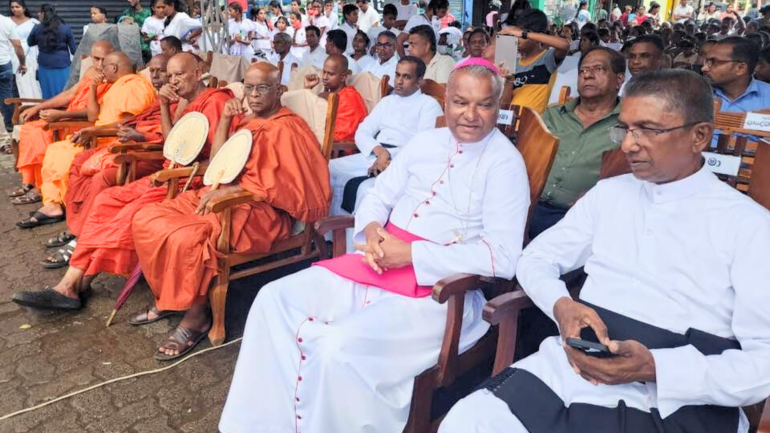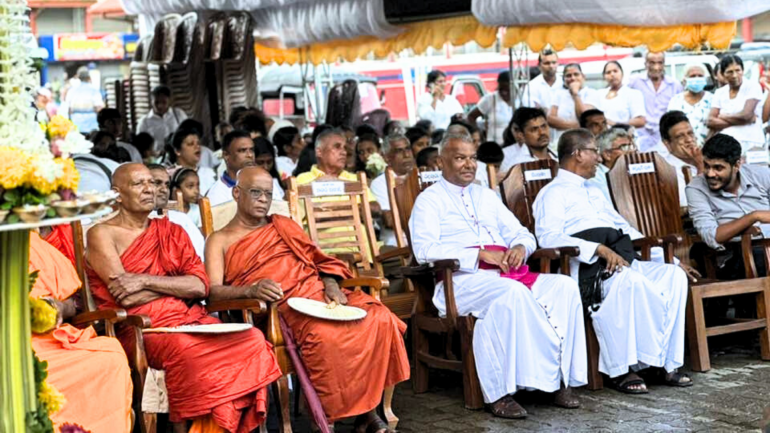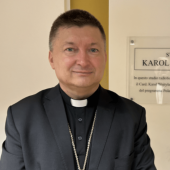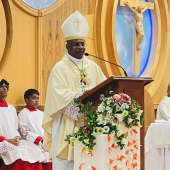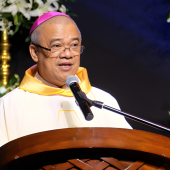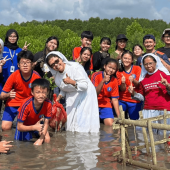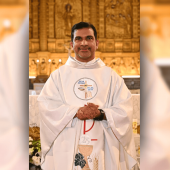Sri Lanka: Buddhist, Muslim, and Catholic children participate in interreligious event
Children from Buddhist, Catholic, and Islamic religions participated in the Poson Bhakthi Geetha (‘devotional songs’ in Sinhala) on June 11 to promote inter-religious cultural ties in Sri Lanka.
The event took place in Weligama, a town on the south coast of Sri Lanka, located in Matara District, Southern Province.
Catholic Bishop Raymond Wickramasinghe of the Galle diocese, Buddhist chief monks of Weligama, and Muslim Maulavis participated in the celebrations.
The Inter-Religious Organization, the government Divisional Secretariat Office, and business organizations in Weligama organized the annual event.
"Poson Bakthi Geetha" in Sinhala (Sri Lanka’s national language) refers to devotional songs or hymns that are sung to celebrate “Poson Poya,” an important Buddhist festival in Sri Lanka. Poson Poya marks the introduction of Buddhism to the island by Arahat Mahinda to King Devanampiyatissa, who ruled in Anuradhapura at the time.
Poson Poya is the full moon day in June, a major Buddhist holiday in Sri Lanka, marking the arrival of Buddhism on the island.
The devotional songs in Sinhala are often sung in Sinhala or Pali and praise the Buddha, the teachings of Buddhism, or the significance of Poson.
Poson Bakthi Geetha is part of the broader celebrations of Poson, which include various religious and cultural activities, particularly at Mihintale, where Buddhism was first introduced.
Bakthi Geetha is an important and cohesive way to bind people from various religions in Sri Lanka together through the universal language of music, to be shared and enjoyed by all.
Buddhism is the majority religion in Sri Lanka, an island nation. Sizable communities of Muslims, Hindus, and Christians constitute about 7% of the 22 million people who live there.
Radio Veritas Asia (RVA), a media platform of the Catholic Church, aims to share Christ. RVA started in 1969 as a continental Catholic radio station to serve Asian countries in their respective local language, thus earning the tag “the Voice of Asian Christianity.” Responding to the emerging context, RVA embraced media platforms to connect with the global Asian audience via its 21 language websites and various social media platforms.





